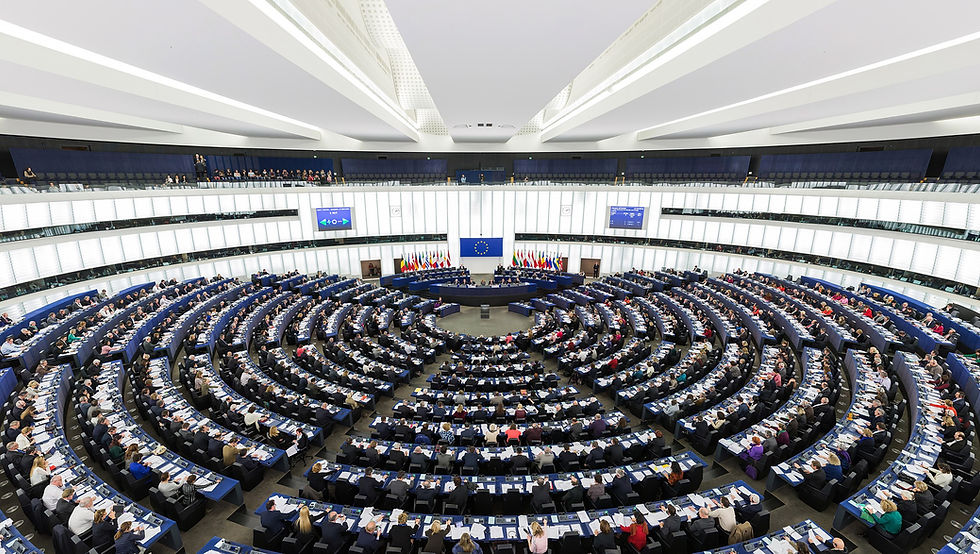Is climate change on the German agenda for the European Parliament (EP) elections?
- maxjungmann
- Mar 22, 2020
- 4 min read
Updated: Dec 17, 2020
A comparison of the election programmes of German political parties for the 2014 and 2019 EP elections
Article by: Jakob Landwehr
Will we have a 2019-2024 European Parliament with representatives who care about the environment? As the country with the highest number of elected representatives, Germany is a particularly interesting case study that may help to answer this question. On 26 May 2019, German voters will elect 96 out of the 751 Members of the European Parliament (MEPs) (Der Bundeswahlleiter 2019). In anticipation of the upcoming European Parliament election, this post reviews the election programmes of the six major German parties[1], with a focus on the environment and climate change mitigation, to determine whether the attention of political parties on these issues has increased. A content analysis provides a general overview of how frequently the terms “Umwelt” (environment), “Klimawandel” (climate change), and “Klimaschutz” (climate protection) have been used by all parties in their election programmes, thereby enabling a comparison of the upcoming election with the last election in 2014.
In recent years, the international community has reached important agreements in the fields of climate change mitigation and environmental protection, most notably the Paris Agreement and the 13th Sustainable Development Goal (SDG) on climate action (UNFCCC; UNGA 2015). To achieve these international targets, the German government adopted the Climate Action Programme 2020 in 2014 and the follow-up Climate Action Plan 2050 in 2016 (BMUB 2017). The Climate Action Plan 2050 outlines climate targets for the energy, building, mobility, industry and business, agriculture, and land use and forestry sectors and provides emissions reduction targets for these sectors for the year 2030 (BMUB 2016, 4-5). However, the German government recently admitted that it will miss its 2020 greenhouse gas emissions target on climate change (Amelang 2018). Instead of a 40% reduction in greenhouse gas emissions (compared to 1990), Germany will likely achieve only a 32% reduction, according to the German Climate Protection Report (BMUB 2018, 7). Nevertheless, the proposed Climate Action Law, which was submitted for discussion by the German government in early 2019 but has not yet been adopted, calls for an ambitious target: a 95% reduction by 2050. The law aims to transfer binding EU climate targets into German legislation and make the 2030 greenhouse gas reduction targets legally binding (Appunn & Wettengel 2019). Meanwhile, the ongoing “Fridays for Future” protests of schoolchildren in Germany and around the world have put additional pressure on political parties, in particular those that are represented in government, to take action on climate change. This indicates that climate change is high on the agenda, that it should therefore be even more highly prioritised in public discussions going forward, and that it might also be reflected in parties’ election programmes.

A content analysis of election programmes reveals some interesting and also promising findings, as can be seen in Table 1. Firstly, parties’ election programmes vary in the number of pages. The main German political parties have published either a detailed programme or only a summary with the most important facts. In general, there has been an increase in the length of election programmes, which has of course contributed to increased use of all three terms. It is also no surprise that the Greens, a party that focuses on ecological and environmental issues, ranks at the top regarding the inclusion of environmental and climate change in its respective election programme. One positive finding is that, in 2019, all parties have at least considered the issues of climate change and protection in their election programmes. However, this does not tell us if the topic is of central importance for the party or if it is only a footnote within the programme. Nor is a simple quantitative analysis able to say more about the context or quality of proposals, demands, and suggestions related to climate change mitigation. But the purpose of this analysis is to demonstrate that the issues of climate change and environmental protection have become more prominent, at least on paper, which can be considered as a good first sign of increased attention from German political parties. This positive development should not prevent us from maintaining pressure on political leaders so that they further advocate for the implementation of global climate goals and targets and inform the public honestly and objectively. Furthermore, all European citizens—and for other elections, all citizens around the world—should study the election programmes of parties in their countries, critically reflect upon the information therein, and exercise their right to vote to shape our future agenda!
Sources:
Bundesministerium für Umwelt, Naturschutz und nukleare Sicherheit (BMUB) (2018). Klimaschutzbericht 2017
United Nations Framework Convention on Climate Change (UNFCCC) (n.d.). History of the Convention




Comments